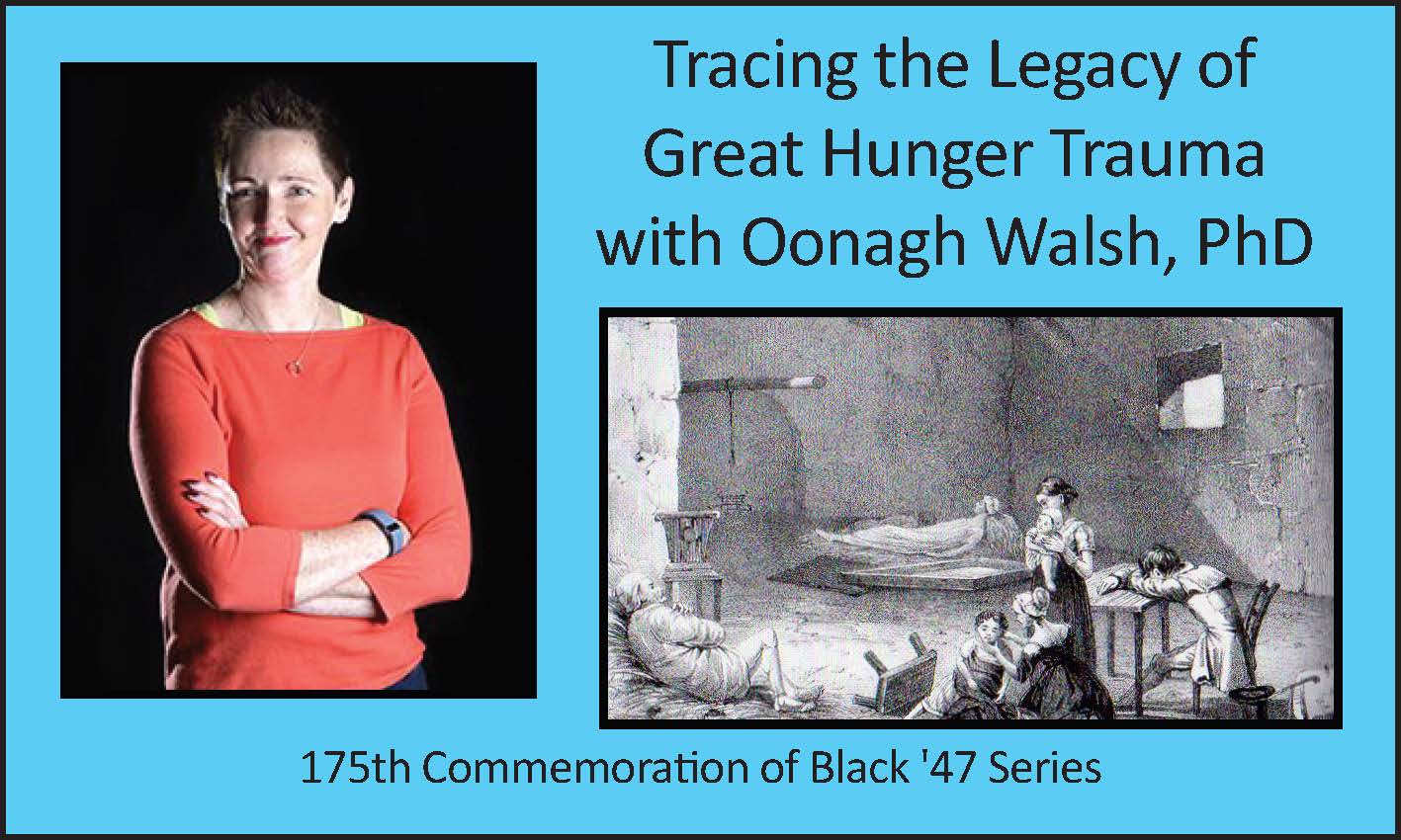Were there long term consequences on Irish mental health because of the Great Hunger? Epigenetics is the study of changes in gene expression that do not involve alterations to the genetic code or DNA, but whose effects may persist over several generations. Since 2013, Dr. Oonagh Walsh has been researching and reporting on the negative effects maternal starvation had on babies during and immediately after the Great Hunger, resulting in possible epigenetic changes. Walsh’s findings have uncovered high rates of mental illnesses and a subsequent increase in psychiatric asylum commitment among the population and their descendants. Studies have also been carried out on similarly traumatized populations, like Native Americans and survivors of the Dutch Hunger Winter of ‘44-45.
Dr. Walsh will discuss how Famine survivors’ trauma was potentially passed down to their descendants, leading to increased susceptibility to cardiovascular and mental illness.
Educated at Trinity College, Dublin (B.A. History & English and PhD in modern Irish history) and Nottingham University (M.A. American Studies), Dr. Oonagh Walsh taught at LSU College, Southampton, Aberdeen University and University College Cork before her appointment as Professor of Gender Studies at Glasgow Caledonian University in 2012. Dr. Walsh’s principal research interests lie in gender and medical histories, and in the nineteenth century history of Irish psychiatry in particular. She has published on a range of areas in modern Irish history, including Protestant women’s social, political and cultural experiences, the development of the asylum system in the west of Ireland, and twentieth century obstetrics.
